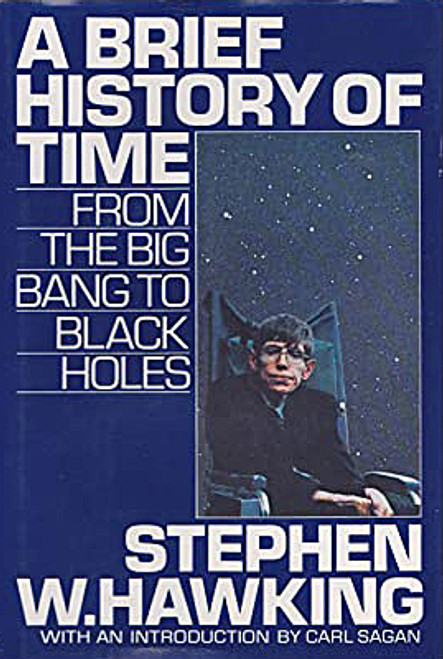Stephen W. Hawking has achieved international prominence as one of the great minds of the twentieth century. Now, for the first time, he has written a popular work exploring the outer limits of our knowledge of astrophysics and the nature of time and the universe. The result is a truly enlightening book: a classic introduction to today's most important scientific ideas about the cosmos, and a unique opportunity to experience the intellect of one of the most imaginative, influential thinkers of our age.
From the vantage point of the wheelchair where he has spent the last twenty years trapped by Lou Gehrig's disease, Professor Hawking himself has transformed our view of the universe. His groundbreaking research into black holes offers clues to that elusive moment when the universe was born. Now, in the incisive style which is his trademark, Professor Hawking shows us how mankind's "world picture" has evolved from the time of Aristotle through the 1915 breakthrough of Albert Einstein, to the exciting ideas of today's prominent young physicists.
Was there a beginning of time? Will there be an end? Is the universe infinite? or does it have boundaries? With these fundamental questions in mind, Hawking reviews the great theories of the cosmos -- and all the puzzles, paradoxes and contradictions still unresolved. With great care he explains Galileo's and Newton's discoveries. Next he takes us step-by-step through Einstein's general theory of relativity (which concerns the extraordinarily vast) and then moves on to the other great theory of our century, quantum mechanics (which concerns the extraordinarily tiny). And last, he explores the worldwide effort to combine the two into a single quantum theory of gravity, the unified theory, which should resolve all the mysteries left unsolved -- and he tells why he believes that momentous discovery is not far off.
Professor Hawking also travels into the exotic realms of deep space, distant galaxies, black holes, quarks, GUTs, particles with "flavors" and "spin, " antimatter, the "arrows of time" -- and intrigues us with their unexpected implications. He reveals the unsettling possibilities of time running backward when an expanding universe collapses, a universe with as many as eleven dimensions, a theory of a "no boundary" universe that may replace the big bang theory and a God who may be increasingly fenced in by the new discoveries -- who may be the prime mover in the creation of it all.
A Brief History of Time is a landmark book written for those of us who prefer words to equations. Told by an extraordinary contributor to the ideas of humankind, this is the story of the ultimate quest for knowledge, the ongoing search for the secrets at the heart of time and space.
Introduction by Carl Sagan
Illustrations by Ron Miller
Editorial Reviews
"Stephen Hawking has overcome a crippling disease to become the supernova of world physics. Unable to write, or even to speak clearly, he is leaping beyond relativity, beyond quantum mechanics, beyond the big bang, to the 'dance of geometry' that created the universe." —Timothy Ferris, Vanity Fair
"Hawking's discovery that black holes emit particles caused great excitement among astronomers. In this succinct overview of current theories of the cosmos, the Cambridge University physicist modestly weaves in his own notable contributions while giving due credit to his colleagues. He explains why relativity implies that a ``big bang'' occurred and examines string theory, which posits a universe of 10 or 26 dimensions. His understanding of time's flow leads him to conclude that intelligent beings can only exist during the expansion phase of our increasingly chaotic universe. New research on black holes and subatomic particles holds implications for scientists who, like Hawking, are attempting to devise a unified theory linking Einstein to quantum mechanics. The merit of this book is Hawking's ability to make these ideas graspable by the lay reader." —Publishers Weekly
"When the achievements of the physicists of the twentieth century come to be considered objectively, the work of Stephen Hawking will be writ large in the annals of science." —Astronomy
"[Hawking] can explain the complexities of cosmological physics with an engaging combination of clarity and wit. . . . His is a brain of extraordinary power.” —The New York Review of Books
“Even as he sits helpless in his wheelchair, his mind seems to soar ever more brilliantly across the vastness of space and time to unlock the secrets of the universe.” —Time
About the Author








